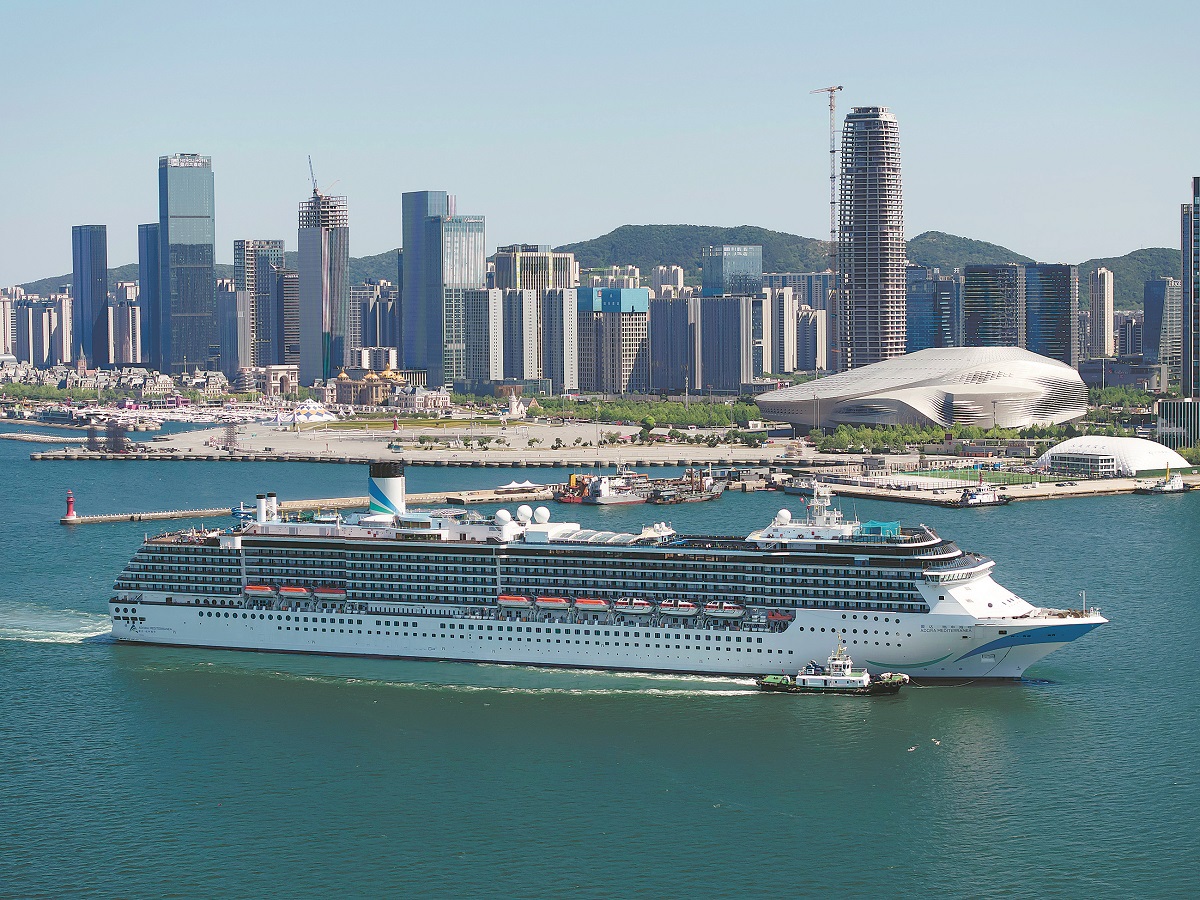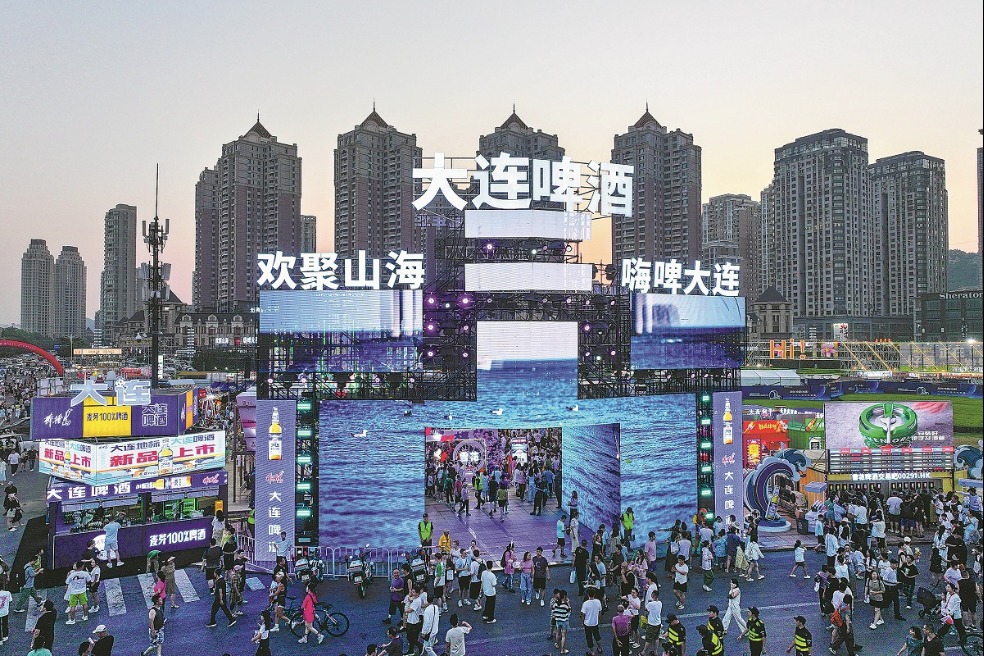Dalian to expand foreign trade as it eyes 1 trillion-yuan milestone
Port city aims to further boost GDP, advance consumption






Coastal tourism
Dalian, with the longest coastline on the Chinese mainland at 2,211 kilometers, is also strengthening as a tourism hub.
This year, voyage bookings on Adora Mediterranea, a cruise ship operated by Chinese cruise line Adora Cruises, have been in high demand in Dalian, according to the operator and travel agencies.
The popularity of voyages has been a shot in the arm for the recovery and growth of the cruise tourism market in Dalian and Northeast China, Dalian Port said.
Liaoning Port Group, the parent company of Dalian Port, has continued to renovate the berth and international waiting halls of Dalian Port, and launched services such as foreign currency exchange and sales of duty-free goods to enhance its ability to receive international cruise ships and passengers.
"Fueled by China's policies such as unilateral visa-free entry to multiple countries and visa-free transit for foreign tourists, we firmly believe that the number of cruise ships and tourists visiting Dalian will significantly grow in the future," said Wang Bo, assistant to the general manager of Dalian Port's passenger transport branch.
Dalian started receiving international cruise ships in 1976, and since then has attracted tens of thousands of tourists for sightseeing. This year, the city is expected to welcome 15 international cruise ship visits.
Besides taking cruises, more foreign tourists are arriving in Dalian as individual travelers, as China's favorable visa policies bear fruit. Late last year, China began unilateral visa-free policies for visitors from South Korea and Japan. Located close to the two countries, the number of inbound tourists to Dalian has since significantly increased.
In the first six months of this year, Dalian International Airport saw more than 89,000 passenger trips by inbound foreign visitors, up 53.4 percent year-on-year.
Of those, 61,000 foreigners entered the city with visa-free entry or under the 240-hour visa-free transit arrangement, accounting for 68.1 percent of the total, according to the local border inspection.
A total of 90 percent of inbound foreign travelers were from Japan, South Korea, Russia and Mongolia, Dalian Zhoushuizi entry-exit border inspection station said.



















